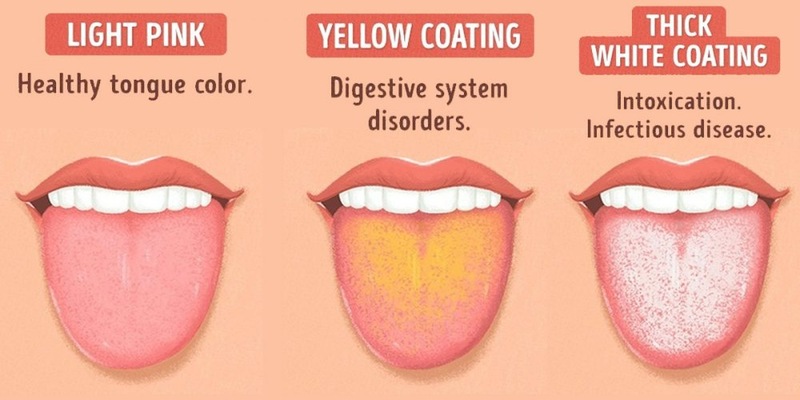Over an extended period, the medical world has conducted extensive research into the intriguing correlation between blood type and many health concerns. Emerging research indicates that blood type may have a more substantial influence on individual health than previously acknowledged, particularly with regard to the possible susceptibility to ailments such as stroke. Comprehending the personal risk factors associated with stroke encompasses more than mere knowledge, as it necessitates a proactive approach to prevention. By conducting an in-depth analysis of the potential impact of blood type on an individual's susceptibility to strokes, we not only gain more understanding of personal health dynamics but also underscore the need of customizing health approaches to accommodate these distinct predispositions.
Basics of Blood Types
It is largely categorized into four principal groupings, namely A, B, AB, and O. Each group may be further categorized depending on the presence (+) or lack (-) of the Rhesus (Rh) component, resulting in kinds such as A+, A-, B+, B-, and so forth. The classification of these categories has significant importance in several medical procedures, including blood transfusions, organ transplants, and some reproductive contexts.
The inheritance of blood type is governed by particular genetic factors transmitted from one generation to the next. Over the course of time, scholars have made significant findings indicating that blood types may have implications beyond their primary function of determining transfusion compatibility. These implications include the potential influence of blood types on an individual's vulnerability to certain illnesses and health problems, such as stroke.
How Blood Type Affects Overall Health
The complex relationship between blood type and general health has been the focus of much research and discourse within the medical field. Although blood types are generally associated with transfusion compatibility, recent research indicates that they may have wider consequences for overall health. For example, there exists an association between different blood types and an increased susceptibility to certain illnesses, ranging from gastrointestinal disorders to cardiovascular conditions.

Previous research has shown a potential association between those with Type O blood and a reduced likelihood of developing cardiac problems, whereas individuals with Type A blood may exhibit increased susceptibility to certain bacterial infections. Moreover, there have been indications that blood type may have an impact on the amounts of digestive enzymes, which might possibly have implications for dietary tolerances. Moreover, blood type may potentially influence our stress response and susceptibility to infections. Although these associations do not determine health outcomes, they emphasize the need for tailored health strategies that take into account individual genetic predispositions.
Blood Type and Stroke Risk: The Science Behind It
Recent Research Findings
Pioneering research has started to reveal previously unacknowledged connections. One important discovery indicates that persons with Type AB blood may have an increased susceptibility to stroke development in comparison to those with Type O blood. The precise variables contributing to this heightened risk are now being investigated, with some researchers hypothesizing a potential association with clotting factors or inflammatory reactions intrinsic to certain blood types.
An additional research investigation has provided insights into the connection between those classified as Type A or Type B and their potential for experiencing a little increased risk of stroke in comparison to those classified as Type O. Although the present results are now undergoing refinement and are a component of continuing study, they have engendered a revived curiosity in comprehending the genetic foundations of vulnerability to stroke.
Implications for Different Blood Groups
The investigation into the impact of various blood types on the likelihood of experiencing a stroke has yielded fascinating findings. Individuals with Type AB blood are considered to be at the greatest risk, and as a result, there may be consequences such as an increased frequency of health tests or a more personalized strategy to managing cardiovascular health. Individuals classified as Type A or B, while not as susceptible as those with AB, may also get advantages from exercising increased vigilance about possible symptoms of stroke. In contrast, those with Type O blood, often seen as having a reduced risk, should refrain from developing a sense of complacency.
Although individuals may possess some hereditary traits that provide a degree of defense, it is important to acknowledge that other variables such as lifestyle choices and environmental conditions also have significant influence. The primary objective for individuals of all blood types is to use this knowledge as a resource, enabling them to enhance their health-related decision-making by comprehending their inherent vulnerabilities.
Other Stroke Risk Factors to Consider
Lifestyle and Dietary Factors
Genetics and blood type are significant factors in the determination of stroke risk, and they are complemented by the substantial contributions of lifestyle and dietary choices. Unhealthy dietary practices, characterized by the excessive intake of sodium, unhealthy fats, and excessive sugar, have been shown to contribute to elevated blood pressure and cholesterol levels.
Furthermore, it should be noted that a lack of physical activity has been identified as a significant contributor to the development of obesity, which is recognized as a prominent risk factor. Cigarette smoking has been shown to have detrimental effects on blood arteries, rendering them more susceptible to blockages, while concurrently promoting blood thickening, hence elevating the risk of clot formation. In contrast, the drinking of alcohol in excessive amounts has been shown to elevate blood pressure levels and lead to the occurrence of abnormal cardiac rhythms.
Moreover, the presence of uncontrolled stress, which is often an indirect consequence of certain lifestyles, has been associated with the incidence of strokes as a result of its influence on both blood pressure and heart rate. Therefore, it is necessary to prioritize the emphasis on balanced meals, regular exercise, and the avoidance of dangerous behaviors in order to effectively manage and reduce the risks associated with stroke.

Genetic and Environmental Influences
A person's propensity to have a stroke may be determined in large part by hereditary factors. However, genes aren't the only factor. These dangers may be magnified by exposure to environmental variables such poisons, pollution, or living in locations with poor air quality. Some communities or people may be more at risk because they lack resources to get the treatment they need, eat well, or learn about ways to be healthy. An individual's whole risk profile is determined by the interaction between their genes and their environment. Comprehensive stroke preventive efforts, which address both genetic susceptibilities and environmental exposures, need recognition of this interconnection.
Ways to Reduce Risk of Stroke Regardless of Blood Type
Although blood type and genetics have a role in determining stroke risk, this risk may be significantly reduced via the practice of good lifestyle behaviors. Checking blood pressure, cholesterol, and glucose levels on a regular basis may serve as an early warning system, allowing for prompt treatment. A heart-healthy diet that emphasizes plant-based foods, whole grains, and lean meats may drastically reduce the likelihood of developing cardiovascular disease.
Moderate physical exercise helps people keep their weight down and their blood flowing smoothly. In addition, the cardiovascular system may benefit greatly from stress management strategies like meditation, yoga, or even just learning to relax. It's also important to stay away from smoke and drink alcohol in moderation. Finally, protecting oneself against a stroke may be done by being well-informed, acknowledging one's own risk factors, and taking an active role in managing one's health.
Conclusion
A new area in customized health management is the investigation of the correlation between blood type and the likelihood of suffering a stroke. Lifestyle, food, environmental circumstances, and inherited features all work together with genetics to determine an individual's risk. To mitigate these dangers, it is crucial to practice preventative care and develop healthy routines. Regular checkups and making healthy decisions may make a huge impact in one's health, regardless of one's blood type. Even as our understanding and study of strokes grows, it is still up to people to keep themselves well-informed, alert, and proactive in protecting themselves from the many ways in which they might be harmed.




